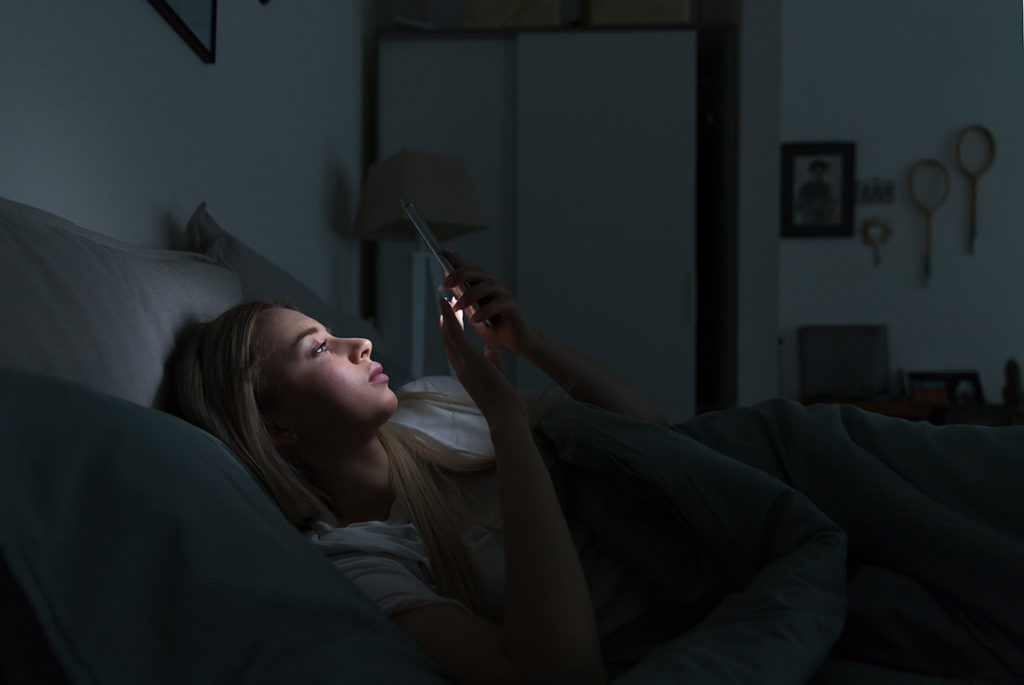Sleep is essential to every vital function in the body. Go without even one night of sleep and you’re likely to feel it the next day. Getting good sleep regulates the body’s hormones, helps the brain clear toxins, and even helps with weight management. Sleeping well is one of the healthiest things you can do to optimize good health and well-being.
Even the best of sleepers will have an occasional sleepless night. For some people though, sleepless nights are the norm. In fact, the National Institutes of Health estimate that nearly 40 million Americans struggle with chronic sleep issues and insomnia. Anxiety has also been linked to sleep problems.
If you’re struggling to sleep, you may be wondering is it insomnia or anxiety? The answer might surprise you.
The Insomnia and Anxiety Connection
Insomnia is a broad clinical term used to describe the inability to fall asleep or stay asleep, early waking or waking up feeling tired and unrested. There are many conditions that can contribute to insomnia. Common conditions include sleep apnea, chronic pain, and restless leg syndrome.
Not being able to fall asleep, for whatever reason, can result in increased worry and stress about not being able to sleep resulting in feeling anxious. Studies have found that sleep deprivation can trigger significant anxiety and potentially result in the development of an anxiety disorder.
On the other hand, anxiety and stress can contribute to problems sleeping. Preoccupation with worries can keep your body and mind from relaxing, causing the release of those neurotransmitters that keep you alert and on guard. Finding sleep when that’s happening is not likely. Over time, this worry/insomnia cycle can become habit resulting in a disrupted sleep pattern.
So, is your sleep problem the result of insomnia or anxiety? The answer seems to be both. Whether you experience insomnia first or anxiety first, the end result is the same. You can’t sleep. You’re anxious and exhausted, worried you’ll never have a peaceful night’s sleep again.
The good news is, help is available.
Treating Sleep Issues
Part of treating sleep issues is breaking the cycle and addressing the underlying factors that keep the cycle going. The best approach incorporates behavioral changes as well as dealing with issues and, sometimes, use of specific medications to reset the sleep cycle.

Sleep Hygiene
Your first step in a better night’s sleep is practicing good sleep hygiene. Sleep hygiene refers to habits and practices that support consistent, restful sleep. Some of the most effective practices are:
- A cool, dark sleeping space
- Comfortable bedding
- Setting a consistent bed time
- Ending screen time an hour before lights out
Therapy
If you are practicing good sleep hygiene and still struggling, it may be time to consider therapy. A specialized type of therapy, Cognitive Behavioral Therapy (CBT), has been shown to be highly effective in addressing sleep and anxiety issues. CBT can help you to modify the thoughts and behaviors that impact your sleep.
Medication
In some cases, your doctor or therapist may recommend medication as part of the process. The type of medication will depend on your unique needs. If you’re struggling to get a good night’s sleep or your anxiety is keeping you awake, Solstice Psychiatry has the expertise to help you find the solution that is right for you. When you’re ready to regain control over your sleep, we are here. Ready to schedule? Click here.
